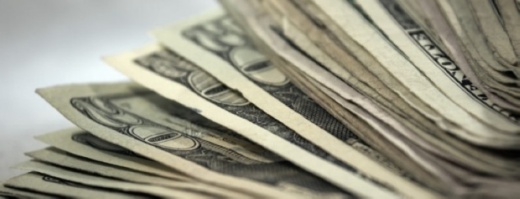The existing property tax rate is $0.548581 per $100 valuation, meaning a League City resident living in a $100,000 home will pay $548.58 in annual property taxes to the city. For FY 2020-21, the city is proposing dropping the rate to $0.535 per $100 valuation—a 2.48% decrease, according to preliminary documents.
The League City property tax rate has fallen each year since FY 2014-15, when it was $0.597 per $100 valuation. In 2010, the rate was $0.63 per $100 valuation.
Officials have said the decreasing rate can be partially attributed to citywide growth and increasing property values: As League City adds more taxable property each year and the taxable valuable of those properties increase, the city can collect the necessary amount of taxes to operate with a decreasing rate. For instance, League City's taxable appraised value for FY 2020-21 is $9.1 billion, which is $380 million more than the taxable appraised value of $8.72 billion in FY 2019-20, or a 4.36% increase, according to the documents.
The FY 2020-21 budget is proposed at $239.56 million, including $144.25 million for operational costs and $95.31 million for capital projects.
That is $11.74 million less than the $251.3 million FY 2019-20 budget adopted a year ago, which included $140.48 million for operations and $110.82 for capital projects. The FY 2019-20 budget actual expenses for operational costs are $145.48 million, according to the documents.
A total of 6.5 full-time positions are being added, which is far fewer than the 23 the city proposed adding in FY 2019-20. The new positions include a civil engineer, a construction inspector, an assistant director and a project manager in project management, a financial analyst, a meter technician and a part-time accounts receivable specialist.
The capital budget will fund 104 projects, including 76 tax-supported projects and 28 utility projects. About $16.64 million will be invested into the maintenance of sidewalks, traffic signals, roadways and parks, and another $17.57 million will fund improvements in streets, such as the Walker Street corridor project and land acquisition for the eventual expansion of Landing Boulevard.
About $22.27 million will go toward implementing drainage projects mainly from the bond voters approved in May 2019 that calls for spending $73 million on drainage projects citywide. Another $19.91 million will fund the design and construction of a 36-inch water line from the Hwy. 3 booster station to the South Shore Harbour booster station.
While COVID-19 was expected to severely reduce League City's sales tax revenue, the damage will not be as bad as officials had originally thought. Officials now expect to collect $20.18 million in sales tax revenue this fiscal year compared to the $20.47 million the city had budgeted in September 2019 for the year, according to the documents.
"Prior to COVID-19, sales tax collections were $508,980 over budget for the months of October 2019 through February 2020," the preliminary budget reads. "As COVID-19 began to affect the Houston area, sales tax collections for the month of March 2020 were $177,000 less than the monthly budget. Even as the first full month of business disruption, sales in the month of April 2020 rebounded, and, surprisingly, collections were $11,000 over the monthly budget."
The League City City Council is in the midst of several workshops to make alterations to the budget. There will be public hearings on the budget Aug. 11 and Aug. 25, after which the council will approve the budget.





